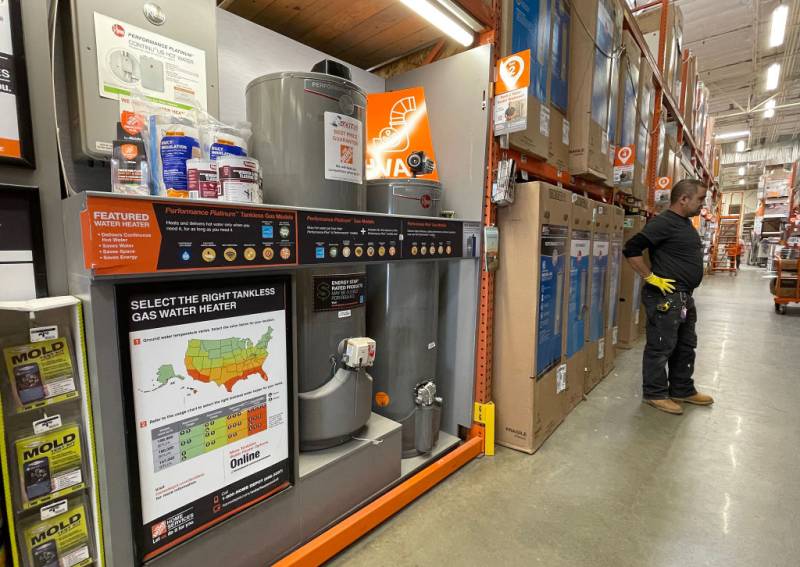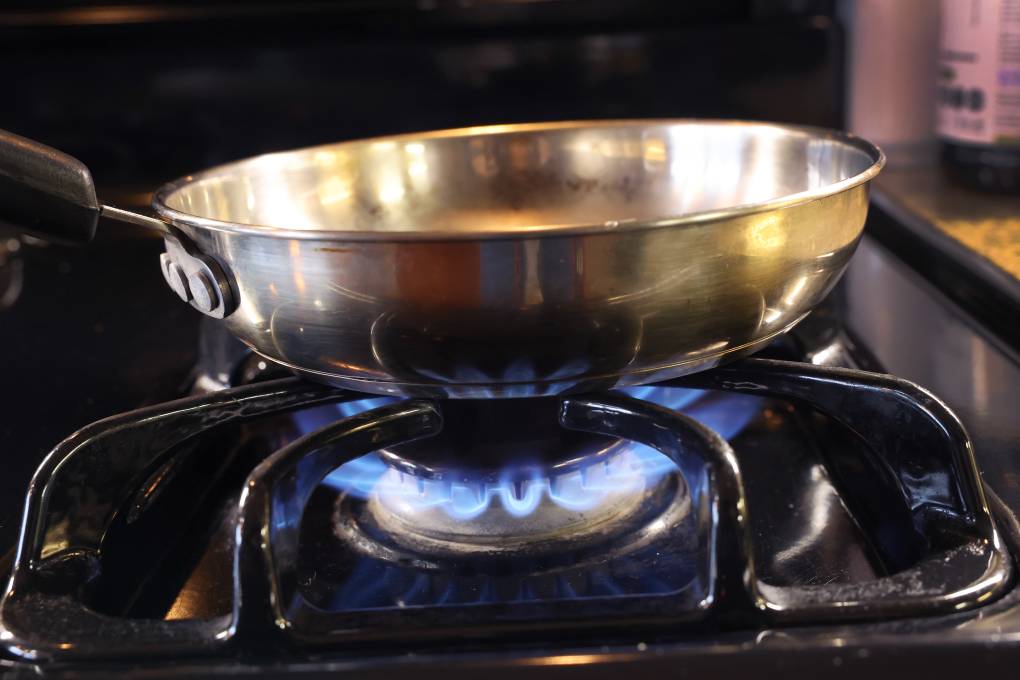Bay Area regulators on Wednesday approved landmark rules to begin phasing out and eventually banning the sale of new natural gas water heaters and furnaces in most of the nine-county region as part of a concerted effort to reduce air pollution.
Bay Area Regulators Approve Rules to Phase Out Gas Furnaces and Water Heaters

Under the ambitious timeline (PDF) established by the Bay Area Air Quality Management District, only zero-emission, electric water heaters can be sold or installed in Bay Area homes or businesses starting in 2027. The same goes for furnaces starting in 2029, and large commercial water heaters in 2031.
"The 1.8 million water heaters and furnaces in the Bay Area significantly impact our air quality, resulting in dozens of early deaths and a wide range of health impacts, particularly in communities of color," Philip Fine, executive officer of the Bay Area Air Quality Management District, said in a statement (PDF).
Officials emphasized the rules only apply to new water heaters and furnace purchases, and won't require the immediate replacement of existing appliances. People can also still repair their broken-down gas appliances, but won't be able to purchase new ones after the rules go into effect.
The rules also have no bearing on gas stoves, an issue that has become a national political flashpoint.
Still, the air board's move has sweeping implications for the roughly two-thirds of households in the Bay Area that still rely on natural gas appliances (PDF).
Gas appliances in residential and commercial buildings in the region account for a similar amount of harmful nitrogen oxide — or NOx — emissions as passenger vehicles, officials said.
NOx emissions contribute to the formation of ozone and smog, and exposure has been linked to asthma and other respiratory conditions, along with increased risk of heart attack, stroke, lung cancer and premature death, officials said.
"While we're talking about two basic appliances that many of us take for granted in our homes, they have tremendous implications not only from an emissions perspective, but also from a public health perspective," said Fernando Gaytan, attorney with environmental group Earthjustice, which advocated for the new rules.
The move comes less than a year after California regulators voted to ban the sale of new gas furnaces and water heaters beginning in 2030.
The agency said the new rules will dramatically improve regional air quality, estimating it will avoid roughly $890 million in health impacts per year, and about 85 premature deaths, from poor air pollution.
"This groundbreaking regulation will phase out the most polluting appliances in homes and businesses to protect Bay Area residents from the harmful air pollution they cause," Fine said in the statement.
More than 100 public commenters, many voicing support for the new rules, spoke in rapid succession at Wednesday's hearing, including public health experts, renters and a group of eighth-grade students.
"I’m here because I have an 18-month-old grandson who's already using an inhaler," East Bay resident Bill Olson told the air board. "These rules are future looking. ... I urge the board to help my grandson and all young people."
The agency said it hopes to implement the rules equitably and cost-efficiently, noting residents' concerns about the steep cost of buying and installing new electric appliances.
A new, zero-NOx electric heater will cost roughly $8,030 (PDF), according to air district estimates released Wednesday. An electrical panel upgrade, if necessary, adds another $2,630 to the total price tag.
Meanwhile, a zero-NOx electric water heater costs about $2,820, plus roughly $960 for any needed panel upgrade, the agency estimates.
But some rebates for home energy-efficiency and electrification projects are currently available through the Inflation Reduction Act passed by Congress last summer, and will increase significantly in 2024, according to the California Energy Commission. They include an $8,000 rebate for heat pumps that can warm and cool homes, $1,750 for heat pump water heaters and $4,000 for electrical system upgrades.
KQED's Anna Marie Yanny and Laura Klivans contributed reporting to this story.


